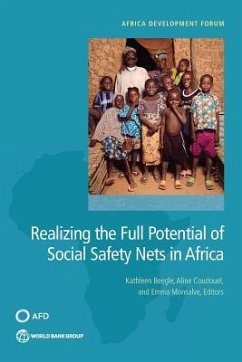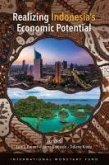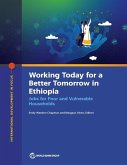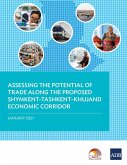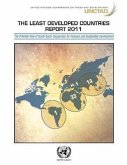Poverty remains a pervasive and complex phenomenon in Sub-Saharan Africa. Part of the agenda in recent years to tackle poverty in Africa has been the launching of social safety nets programs. All countries have now deployed safety net interventions as part of their core development programs. The number of programs has skyrocketed since the mid-2000s though many programs remain limited in size. This shift in social policy reflects the progressive evolution in the understanding of the role that social safety nets can play in the fight against poverty and vulnerability, and more generally in the human capital and growth agenda. Evidence on their impacts on equity, resilience, and opportunity is growing, and makes a foundational case for investments in safety nets as a major component of national development plans. For this potential to be realized, however, safety net programs need to be significantly scaled-up. Such scaling up will involve a series of technical considerations to identify the parameters, tools, and processes that can deliver maximum benefits to the poor and vulnerable. However, in addition to technical considerations, and at least as importantly, this report argues that a series of decisive shifts need to occur in three other critical spheres: political, institutional, and fiscal. First, the political processes that shape the extent and nature of social policy need to be recognized, by stimulating political appetite for safety nets, choosing politically smart parameters, and harnessing the political impacts of safety nets to promote their sustainability. Second, the anchoring of safety net programs in institutional arrangements - related to the overarching policy framework for safety nets, the functions of policy and coordination, as well as program management and implementation - is particularly important as programs expand and are increasingly implemented through national channels. And third, in most countries, the level and predictability of resources devoted to the sector needs to increase for safety nets to reach the desired scale, through increased efficiency, increased volumes and new sources of financing, and greater ability to effectively respond to shocks. This report highlights the implications which political, institutional, and fiscal aspects have for the choice and design of programs. Fundamentally, it argues that these considerations are critical to ensure the successful scaling-up of social safety nets in Africa, and that ignoring them could lead to technically-sound, but practically impossible, choices and designs.
Hinweis: Dieser Artikel kann nur an eine deutsche Lieferadresse ausgeliefert werden.
Hinweis: Dieser Artikel kann nur an eine deutsche Lieferadresse ausgeliefert werden.

